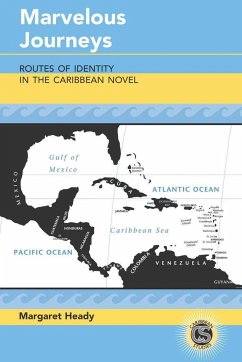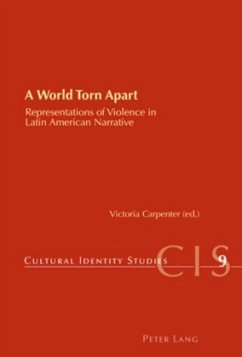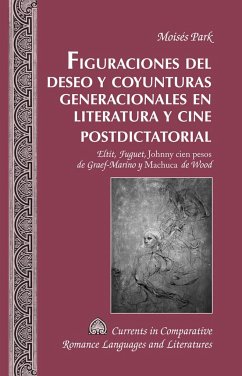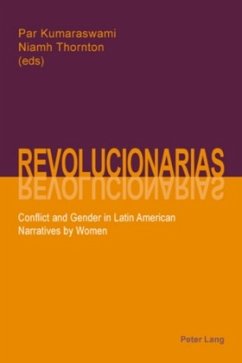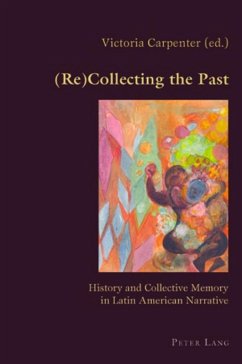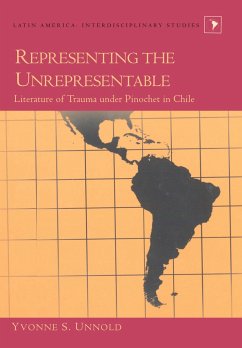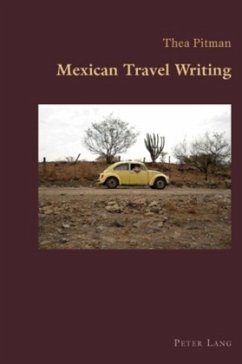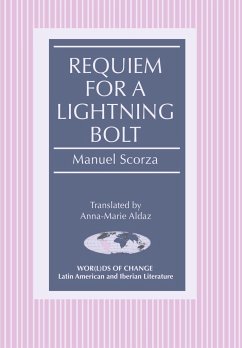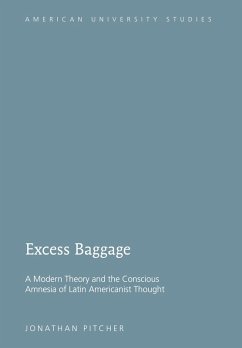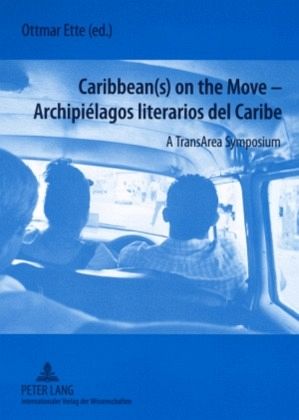
Caribbean(s) on the Move - - Archipiélagos literarios del Caribe
A TransArea Symposium
Herausgegeben: Ette, Ottmar
Versandkostenfrei!
Versandfertig in 6-10 Tagen
64,80 €
inkl. MwSt.

PAYBACK Punkte
0 °P sammeln!
Space can best be defined not by looking at borders and territories but, rather, by focussing on movements of crossing and re-crossing. Today, the horizons of traditional Area Studies have to be opened up by innovative TransArea Studies which generate a new vision of entangled and connected histories and multi-, inter- and transcultural developments. The vectorization of all kinds of knowledge is on the agenda: the movements of the past are still present in the movements of today. Could there be a better field for this theoretical shift than the Caribbean, one of the outstanding producers of c...
Space can best be defined not by looking at borders and territories but, rather, by focussing on movements of crossing and re-crossing. Today, the horizons of traditional Area Studies have to be opened up by innovative TransArea Studies which generate a new vision of entangled and connected histories and multi-, inter- and transcultural developments. The vectorization of all kinds of knowledge is on the agenda: the movements of the past are still present in the movements of today. Could there be a better field for this theoretical shift than the Caribbean, one of the outstanding producers of cultural and literary theories of our time? The articles gathered in this volume accept the challenge of portraying the Caribbean(s) on the Move and of rethinking the Caribbean from the standpoint of its world-wide mobile cultural networks.
Un espacio puede ser definido de la manera más adecuada focalizando sus movimientos cruzados y entrecruzados y no desde el ángulo de sus fronteras y territorios. El horizonte de los Estudios de Área tradicionales deberá ampliarse en la actualidad por medio de los innovadores Estudios Transareales, para generar así una nueva visión de historias entrelazadas y conectadas, así como una nueva perspectiva de los desarrollos multi-, inter- y transculturales. Está presente aquí la vectorización de todos los tipos de saberes: los movimientos del pasado signen vigentes en los movimientos de hoy. ¿Habrá un espacio más idóneo para este desplazamiento teórico que el Caribe, verdadero surtidor te teorías culturales y literarias? Los artículos reunidos en este libro se han propuesto la difícil tarea de perfilar los archipiélagos literarios del Caribe y de repensar el Caribe desde el punto de vista de sus redes culturales globales y móviles.
Un espacio puede ser definido de la manera más adecuada focalizando sus movimientos cruzados y entrecruzados y no desde el ángulo de sus fronteras y territorios. El horizonte de los Estudios de Área tradicionales deberá ampliarse en la actualidad por medio de los innovadores Estudios Transareales, para generar así una nueva visión de historias entrelazadas y conectadas, así como una nueva perspectiva de los desarrollos multi-, inter- y transculturales. Está presente aquí la vectorización de todos los tipos de saberes: los movimientos del pasado signen vigentes en los movimientos de hoy. ¿Habrá un espacio más idóneo para este desplazamiento teórico que el Caribe, verdadero surtidor te teorías culturales y literarias? Los artículos reunidos en este libro se han propuesto la difícil tarea de perfilar los archipiélagos literarios del Caribe y de repensar el Caribe desde el punto de vista de sus redes culturales globales y móviles.



